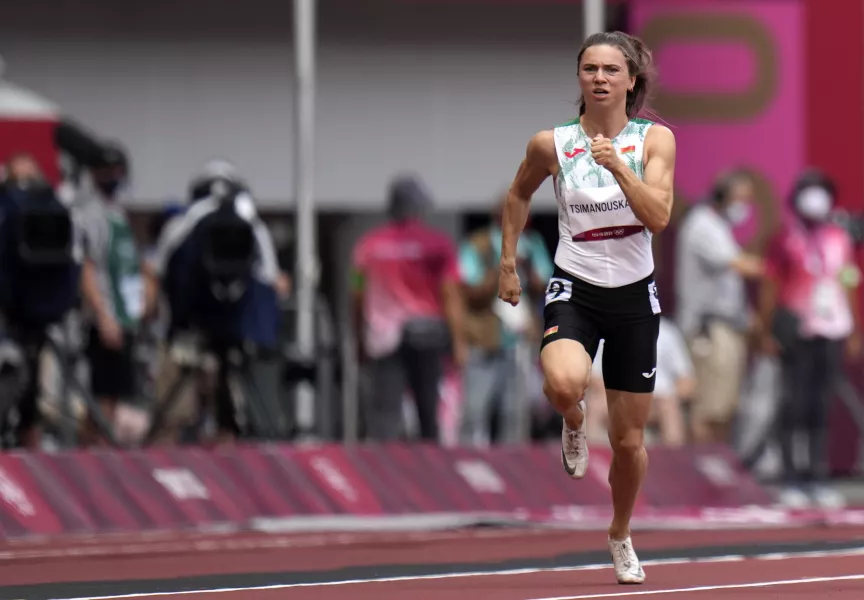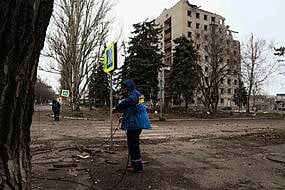Belarusian Olympic sprinter Krystsina Tsimanouskaya has said officials from her home country “made it clear” she would face punishment if she returned to Belarus, after accusing team officials of trying to force her to leave the Tokyo Games early.
Tsimanouskaya, who had criticised the management of her team on social media, said officials hustled her to the airport in Japan and tried to put her on a plane back to Belarus, where the autocratic government has relentlessly stifled dissent and criticism.
She said she hopes to continue her career, but for now her safety remains a priority, and she plans to seek refuge in Europe.
In the dramatic stand-off, several countries offered her help, and Poland granted her a humanitarian visa on Monday. She plans to fly to Warsaw later in the week.

“They made it clear that upon return home I would definitely face some form of punishment,” the 24-year-old told the Associated Press in a videocall interview.
“There were also thinly disguised hints that more would await me.”
She added that she believed she would be kicked off the national team.
Tsimanouskaya told the AP she hopes team managers will be punished by sports officials but does not want anything that would prevent Belarus from competing in the Games.
Asked what made her fear she would be in danger at home, Tsimanouskaya said “the key phrase was that ‘we didn’t make the decision for you to go home, it was decided by other people, and we were merely ordered to make it happen'”.
She added that she is worried about her parents, who remain in Belarus. Her husband, Arseni Zdanevich, left the country and is in Ukraine.
“It was all very sudden. I only had an hour to collect my things,” he said from Ukraine
The stand-off began after Tsimanouskaya’s criticism of how officials were managing her team set off a massive backlash in state-run media back home.
The runner said on her Instagram account that she was put in the 4×400 metres relay even though she has never raced in the event.

Amid the drama, Tsimanouskaya lost a legal fight to run in the 200 metres at the Olympics.
The Court of Arbitration for Sport said in a statement that it denied her request for an interim ruling that would have allowed her to run at the Olympic Stadium on Monday.
The heats were held in the morning and the semi-finals were in the evening.
“For now I just want to safely arrive in Europe… meet with people who have been helping me and make a decision what to do next,” Tsimanouskaya said in the interview.
“I would very much like to continue my sporting career because I’m just 24 and I had plans for two more Olympics, at least,” she said. ”(But) for now, the only thing that concerns me is my safety.”
The events brought international political intrigue to an Olympics that have been more focused on operational dramas, like maintaining safety during a pandemic and navigating widespread Japanese opposition to the event.
Belarus’s authoritarian government has targeted anyone expressing even mild dissent since a presidential election a year ago triggered a wave of unprecedented mass protests.
It has also gone to extremes to stop its critics, including recently diverting a plane to the capital of Minsk and arresting a dissident journalist aboard.







